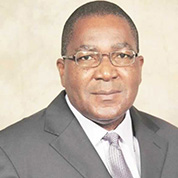About the University of Leicester
Alumni obituaries and tributes
Ute Maria Foggensteiner
We have learnt, with great regret of the death on 7 September 2024 of Leicester alumna Ute Maria Foggensteiner, who graduated in 1988 with First Class BA Honours in Combined Arts majoring in History of Art, with language subsidiaries. Ute also tutored German and Italian languages at both Leicester and at De Montfort universities.
Ute Maria Foggensteiner (1940 – 2024) came to England with her husband in 1965 from Vienna, having been born there in 1940 in an era of great upheaval and austerity. The resilience required to survive such times was evident in her later life. They had lived in Lucca, Italy before the UK, and it was there that she embraced the Italian language. She had studied linguistics and Russian at McGill University, Montreal, Canada before returning to Buckinghamshire in 1977 prior to arriving in Leicestershire in 1983. She continued in academic activities and graduated from the University of Leicester in 1988 with a (rare) First Class Honours degree in Combined Studies majoring in History of Art, with language subsidiaries. Ute then taught German and Italian at both Leicester and De Montfort universities, retiring in 2000.
Post retirement, Ute’s energy and enthusiasm for language and learning were put to good use within the Charnwood u3a. She joined the Italian conversation group and became its group leader from 2014 until 2018, maintaining her customary high but fair standards. She was extremely well-read and joined book groups and a political discussion group.
Her generosity of spirit, wry humour and linguistic experience were much appreciated by those who were fortunate to meet her. She will be greatly missed and we extend our sympathies to her family.
Written by Mary Bettles (B.A. Hons Combined Arts 1971).
Peter Jackson
 Peter Jackson 1938-2024 was born in Tyneside in 1938, and lived mainly Derbyshire and Nottinghamshire during his childhood. He attended Nottingham High School from 1950-1957 and then Leicester University from 1957-1960 when he graduated with a BSc in Chemistry. He always spoke fondly of his time at Leicester.
Peter Jackson 1938-2024 was born in Tyneside in 1938, and lived mainly Derbyshire and Nottinghamshire during his childhood. He attended Nottingham High School from 1950-1957 and then Leicester University from 1957-1960 when he graduated with a BSc in Chemistry. He always spoke fondly of his time at Leicester.
Peter married Christine in 1968 and they had two daughters, setting up the family home in Middlesex where he lived for the rest of his life. He had a long and successful career as a patent attorney, working for various companies including; Laporte, BOC, Hyde Heide & O’Donnell and Barker Brettell. Later in his career he collaborated with Trevor Baylis and Co wrote the book Inventing for Dummies, which was published in 2008.
Deborah Roberts
We have learnt, with great regret, of the death of Leicester alumnus Deborah Roberts. Deborah graduated from the University of Leicester with a Combined Studies BA in 1974.
Cheryl Susan Heath

I have to report the passing of Cheryl Susan Heath nee Youngston (BSc Maths and Psychology 1970) who died on 29 July 2024. Whilst at Leicester she met and later married Peter Heath (BSc English 1971).
After graduating she became a computer programmer for BARIC (a subsidiary of ICL) in central London, working on the contract for Marks and Spencer. Her duties required being on call to deal with programming problems from the punched card system, frequently in the middle of the night. The initial glamour wore off and in 1972 she returned to Leicester to do a Dip Ed.
On completion of the course Cheryl married Peter prior to taking up a teaching post at Elgin Academy in the north of Scotland. Her sheltered teaching experience in Leicester had not prepared her for the experience of 11th stream maths lessons for those who did not want to be in school. Peter joined the RAF as a pilot so Cheryl became a camp follower giving up teaching for a time.
Whilst stationed in Yorkshire, Cheryl became the deputy Manager of a building society in York for 2 years. In 1977 Cheryl gave birth to Alastair and 3 years later to Lucy. As a mother she devoted her time to raising the children and it was not until later that she returned to teaching firstly as supply and then teaching statistics at Lincoln College. She became a statistician for the National Institute of Agricultural Botany in Cambridge until the family’s last move back to Lincoln in 2003.
Cheryl was a very talented artist in various mediums but loved painting on silk and was able to teach others the technique. Her natural patience, good nature and enthusiasm enabled her to charm those who met her. In August 2023 Cheryl and Peter celebrated their Golden wedding anniversary. She was diagnosed with cancer in 2017 and fought a long and valiant fight against cancer. She is sadly missed by all who knew her.
Written by Peter Heath.
Kyria Wilcox Cromwell
 We have learnt, with great regret, of the death of Leicester alumna Kyria Wilcox Cromwell. Kyria graduated from the University of Leicester with a Social Sciences BA in 1970.
We have learnt, with great regret, of the death of Leicester alumna Kyria Wilcox Cromwell. Kyria graduated from the University of Leicester with a Social Sciences BA in 1970.
Kyria was a resident of Clare Hall whilst completing her undergraduate degree at Leicester in the late 1960s. An ardent feminist, she attended sit-ins on campus and in London to protest against apartheid, the Vietnam War and racial discrimination. She enjoyed Jimi Hendrix and Bob Dylan when they toured locally.
Shortly before sitting her final exams, Kyria gave birth to her son Robert Christopher (pictured). Tragically, Robert died from cot death before he could reach his first birthday. It is a source of great comfort for those who knew Kyria that she is now granted eternal rest with him.
After graduating, Kyria obtained a social work qualification and set to work in adoption and fostering in Lewisham. She later progressed to become a team manager for Brixton and Lambeth social services. Pursuit of a career working with children, and especially in enforcing child protection, brought Kyria profound satisfaction.
Kyria was eventually promoted to become the social work team leader for childcare in Bromley, before moving to Croydon to work for a local welfare charity in 1989. Kyria retired early in 1996.
Kyria's legacy of kindness, responsiveness and genuine passion for the children in her care have been mentioned untold times by her colleagues. Her death in January 2024 brought to an end a whirlwind of a passionate and stormy life that is frankly irreplaceable.
Words by Sarah Cromwell-Price.
Frank Galbraith
 We have learnt, with great regret, of the death of Leicester alumnus Frank Galbraith (English Local History MA, 2001). Frank very much enjoyed his involvement with the University and the people he met through his connections with English Local History.
We have learnt, with great regret, of the death of Leicester alumnus Frank Galbraith (English Local History MA, 2001). Frank very much enjoyed his involvement with the University and the people he met through his connections with English Local History.
During his lifetime, Frank generously supported the University Library and Student Hardship Fund.
Douglas R Urquhart
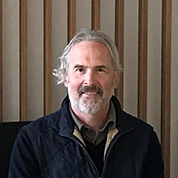 We have learnt, with great regret, of the death of Leicester alumnus Douglas R Urquhart (Law LLB, 1985). Douglas was a generous supporter of the University and had sat as a member on the American Friends of the University of Leicester Board since its creation in 2018.
We have learnt, with great regret, of the death of Leicester alumnus Douglas R Urquhart (Law LLB, 1985). Douglas was a generous supporter of the University and had sat as a member on the American Friends of the University of Leicester Board since its creation in 2018.
Since graduating from Leicester, Douglas had worked as a solicitor at Allen & Overy in London before relocating to the US, where he worked as an attorney and partner at Weil Gotshal in New York.
Professor Lai Oso
We have learnt, with great regret, of the death of Leicester alumnus Professor Muraino Olayiwola Oso, who was better known as Professor Lai Oso. Professor Oso passed away aged 67 following a car accident on Saturday 24 June 2023.
Professor Oso was granted a Federal Government scholarship and graduated from University of Leicester with a PhD degree in Mass Communications in 1979. He was a Professor at Lagos State University and taught courses in Journalism, Media and Governance, Political Communication and Development Communication and Theory. As well as working as a reporter throughout Nigeria, Professor Oso was also a key member of the Nigeria Alumni Chapter.
Thomas Mackillop
 We have learnt, with great regret, of the death of Leicester alumnus Thomas Mackillop (Law LLB, 1979), who died on 20 March 2023, aged 66, after a battle with cancer.
We have learnt, with great regret, of the death of Leicester alumnus Thomas Mackillop (Law LLB, 1979), who died on 20 March 2023, aged 66, after a battle with cancer.
Thomas, who was known as Tom by his family and friends, stayed at College Hall from 1976 to 1978 during his time studying at Leicester. Since graduating, Tom became the Retail Director at the British Museum for 12 years. In 1997, he moved to New York, taking on a role as the General Manager and Vice President of Thomas and Laurel fine jewellery. In 2014, he moved to Sitges in Spain to take up the role as Artistic Director of Club Carinyo, a bar, gallery and event space. After retiring in 2017, Tom returned to the UK.
Dr Peter Richards
We have learnt with regret of the death of Leicester alumnus Peter Richards (BA Geography, 1950; Education Studies Diploma, 1951).
Dr Richards (1927 – 2018) was born in Leicester, before moving to Tottenham at a young age. He completed a Bachelor’s degree and a Diploma at the University of Leicester (then University College Leicester) in the late 1940s. He was the first member of his family to attend University, and later recalled fond memories of his time studying in Leicester.
Dr Richards went on to receive several Masters’ degrees and a Doctorate from other institutions while pursuing a career in Education. This career path culminated when Dr Richards was appointed as Head of Wallasey College of Further Education.
Later in life Dr Richards expressed a wish via a letter to his family to make a donation towards student support at the University of Leicester; a wish that was realised by his daughter Alison in 2023.
Dr Richards’ family are immensely proud of him and his lifetime of achievements, and his daughter Alison maintains a keen interest in developments at University of Leicester, an institution that held a special place in her fathers’ heart.
Malcolm Hooper
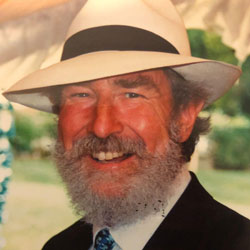
- Fellow of Institute of Mining and Metallurgy
- Fellow of Geological Society
- Master of Camborne School of Mines
- Chartered Engineer
- Trustee of Camborne School of Mines.
Malcolm Hooper (‘Malc’ to many of his friends) died at the age of 81, as he wished at his home in Cornwall overlooking Anna Maria Creek, on Monday 23 January 2023. He was the much beloved husband of Moira Hooper (deceased), father to Dean, Cate and Simmy, and grandfather to five grandchildren, as well as a great friend and colleague to many across the globe.
A well-renowned Mining Consultant by the time he retired, Malcolm’s career began in 1963 as a Field Geologist in Mbarara, Uganda. Malcolm had previously studied Geology at Leicester University and later achieved a MSc in Mining Engineering at Camborne School of Mines. He continued to develop his vast knowledge and skills base throughout his career, which included the design of exploration programmes; preliminary and definitive feasibility studies; competent persons reports, financial evaluation and budgetary control systems; and mineral economics. He was also fluent in French, German, Swahili, Arabic and Russian, always keen to immerse himself with the people, culture and landscape of the countries in which he found himself working.
In the early stages of his career he took his young family with him, moving from Uganda to Campbell Chibougamau Mines Ltd in Quebec, Canada in 1966. As Mine Geologist and Superintendent, he was responsible for all aspects of production management and Health and Safety for two mines. In 1969 he travelled across Canada to work as Project Engineer at Anaconda Britannia Mines Ltd, British Columbia.
It was while in Canada that Malcolm developed his great love and passion for both skiing and fishing. As with the many activities he pursued, he drove himself to excel. In his later years as a proficient and qualified skier, he led ski tours for the Ski Club of Great Britain in both Canada and Europe, heli-skiing a fresh field of powder at Whistler being one of his all time ‘highs’. He sought peace and relaxation on the water, whether it was trout-fishing a chalk stream in Hampshire, sailing his boat on the Helford or helming a yacht through Haida Gwaii off British Columbia’s North Coast.
It was in 1970 that Malcolm and his family returned to the UK and settled on the banks of the Helford river in Cornwall. A glorious part of the world, where he made his home at An-gwel, a place that was to become his sanctuary. He was renowned for his all-embracing welcomes and hospitality. His ‘locally famous’ croquet lawn was perfect for family weddings and many a sundowner was enjoyed on the terrace, a stone's throw from the Budock Vean Golf Club, where he became Captain.
Malcolm’s return to Cornwall was to take up the position of Chief Geologist, Mine Superintendent and Assistant Manager for International Mine Services/Cornwall Tin Mining at Mount Wellington Mine. After seven years working in the U.K. and the collapse of tin prices, he set his sights on working abroad again. As the Executive Director/General Manager, he worked alongside his great friend and colleague Peter Tress, developing the gold mine Mahd adh Dhab for Consolidated Goldfields in Saudi Arabia. He had full responsibility for all technical, financial and administrative operations, working with the Saudi Government to Ministerial level.
Malcolm embarked on his role as a Mining Consultant in 1984 as the Founder and Managing Director of Mine Exploration and Development Co Ltd, and subsequently an independent Mining Consultant in 2004 until his retirement in 2015. This saw him working extensively across the world with a team of experts that he convened, along with his good friends and colleagues, Nick Clarke and Dave Chilcott. Their work took them from Mexico, to Ethiopia, Zambia, Tanzania, Burkina Faso, Uzbekistan, Kazakhstan, Kyrgyzstan, Papua New Guinea and China. Working with clients that included: Wardell Armstrong International, the European Bank for Reconstruction and Development and CSM Associates. Nick shared extraordinary tales of their travels and adventures in his tribute at Malcolm’s funeral service and acknowledged that Malcolm achieved a remarkable feat for any Mining Engineer: being responsible for the development and building of two mines in his lifetime. He was a mentor to many and through his work as a Trustee of the Camborne School of Mines he passionately supported and helped the next generation of geologists and mining engineers.
Malcolm was a man of great stature, intellect and character, whose boundless energy and drive touched many lives, locally and across the globe. He always approached life at full tilt, leaving nothing undone. Whilst he was a rigorous and robust ‘man of science’, he also wanted it to be known that he had a faith and belief in life beyond the realms of this earth. He believed that his mind or consciousness would transcend his body and in time form part of a greater ‘whole’, although he was unsure exactly what or how that would be. Although he never saw himself as religious in the sense of a conventional doctrine, he wanted to be remembered as a Christian man in its broadest sense. He had considered and learnt from many of the great faiths of the world and chosen his own path between: myth, dogma and the religious guidance in the Bible. Malcolm enjoyed 57 years of happy marriage to Moira, and was deeply grieved by her death in 2017. In the last 3 years of his life, he found renewed happiness with his partner Rebecca Rainbow. Sadly in 2020 he was diagnosed with metastatic bowel cancer, but managed to live as full a life as he could for over two years with the support of his partner, family, and friends.
Professor Clyde Chitty
We have learnt, with great regret, of the death of Leicester alumnus Professor Clyde Chitty (BA History).
Professor Clyde Chitty had a teaching career that was largely spent in Leicestershire before taking up a lecturing post at Goldsmiths College, University of London, becoming a Professor of Education there. He was a prolific author of articles and books on education.
Anthony Everson
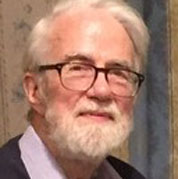 We have learnt, with great regret, of the death of Leicester alumnus Anthony Everson who died on Tuesday October 18 2022, aged 76, after suffering several years of ill health due to Parkinson's and dementia. Anthony studied in the School of Education for the MEd in the academic year 1983-84.
We have learnt, with great regret, of the death of Leicester alumnus Anthony Everson who died on Tuesday October 18 2022, aged 76, after suffering several years of ill health due to Parkinson's and dementia. Anthony studied in the School of Education for the MEd in the academic year 1983-84.
Sydney Simango
Mr Sydney Simango, 64, of Mt. Pleasant, Harare, beloved husband to Susan Simango and most cherished father to Tafadzwa, Bongai (Christy), Shamiso, and Mutsa Simango, passed away on Saturday 17 April 2021.
Born in Chipinge, Sydney was the second son of the late Andrew and Agnes Simango. He began his secondary education in Mutare; gifted in academic and scholarly pursuits from a tender age, Sydney was awarded the opportunity to complete his schooling studies in England, where he attended Redruth School, in Cornwall, in South West England.
With a keen interest in the laws of nature, natural science, and in particular earth science, he elected to pursue a Bachelor of Science degree in Geological Sciences, enrolling at the University of Aston, UK, and completed his studies in 1981. But the motherland called out to him, and with his heart as his guide, Sydney returned to Zimbabwe to begin his mining career at the Geological Survey Department, a department under the Ministry of Mines and Mining Development, as a Field Geologist.
It was in 1981, as well, that he met his one true love, Susan Simango, in Harare and they immediately fell in love and married the same year. Shortly after, they welcomed their firstborn child. But as a man of ambition and conquest, Sydney knew no bounds, choosing to further his education and this time returning to England and settling in the East Midlands to pursue his Master's, spending time between the cities of Birmingham and Leicester.
After being awarded a Masters of Science degree in Mineral Exploration and Mining Geology from the University of Leicester, Sydney returned to Zimbabwe to rejoin the Ministry of Mines and, following the birth of their second child, he was appointed to the senior role of Economic Geologist in 1988. Years later they welcomed two more daughters and he later completed both a Certificate in Management Development Programme and a Certificate in Total Quality Management Programme from UNISA.
Sydney’s career involved pivotal and pioneering roles in some of the country’s most prominent mining ventures including ZIMASCO, Ashanti Goldfields Zimbabwe, Zimbabwe Platinum Mines (ZIMPLATS), ZMDC and, what he would consider his most seminal work, TriMinZim. Sydney was a leader in and for the communities that he served both professionally and on compassionate grounds, contributing to a number of charities that advanced education and provided relief from poverty. Sydney initiated and ran social services organizations such as the Lions Club because he believed the greatest act for each one of us is to make a difference and inspire.
A charismatic and perceptive self-starter, Sydney enjoyed taking walks, fishing, watching soccer games, and spending, in his words, “quality time” with his family. Sydney was an avid traveler, reader, orator, writer, farmer, golf and tennis player, with a deep fondness for flora and fauna as well.
Sydney made lifelong friends wherever he went, from Shurugwi to England, Sakubva to Canada, and Harare to Australia, with each companion cherishing him as a dear friend, and he was proud to be considered thus. His accomplishments include being a longstanding professional member of the Geological Society of Zimbabwe; the Australian Institute of Mining and Metallurgy and the South African Institute of Mining. He was the principal of a geological and mining consultancy, a member of the Mining Affairs Board, and a registered natural scientist with the South African Council for National Scientific Professions.
It is in the eyes of many and, in particular, his wife and his children, that he has no equal. A man who loved deeply and affectionately, who listened dearly and gave advice, counsel, and comfort with no ask in return. A man whose presence was felt in every room he occupied, who made countless sacrifices and helped those in need with no ostentation or fanfare. He was loved by family and friends, numbering in the hundreds if not thousands, all of whom will deeply miss him - his kind eyes, his enveloping and comforting embrace, his larger-than-life personality, and his touching baritone voice.
In addition to his most dear and loving wife Susan Simango, Sydney is survived by his loving daughters Tafadzwa, Shamiso, and Mutsa; his son Bongai (Christy), countless cousins, extended family, and dear friends. Sydney may have left us physically but he remains with us, always in spirit with the abiding grace of the Lord above. They say what we do in life echoes in eternity and as we remember a great man, husband and father, his legacy will last for many tomorrows. Our love for you will last forever and will know no time or bounds.
Musikavanhu mogamuchira Mukanya, Sydney Simango! Soko Vhudzijena, tinokutendai nekukudzai chose nerudo ramakatipa, rusingawanike pasi pano. Nyadenga, Musikavanhu ngaavenemi kusvikanarini!
Words by Bongai Simango and family.
John Sargent
We have learnt, with regret, that alumnus John Sargent passed away on 30th July 2020 following a lengthy period of ill health. John graduated from the University with a Biological Sciences BSc in 1955, before completing a Botany PhD in 1957. It was also while studying at Leicester that he met his wife Pat Sargent (née Darvell), who is also an alumnus of Leicester (History BA 1956).
After graduating, John completed a two-year Fellowship at the University of Wisconsin in the USA, before he and Pat settled in Oxfordshire. John began working at the University of Oxford in the Department of Agriculture, but in his spare time built Mendota House in Islip as a home for himself, Pat and later their children, quite literally from the ground up. This feat was made all the more remarkable by the fact John did so single-handedly, even through the harsh winter of 1963.
Later in his career, John transferred to the University of Cambridge, but returned to Oxfordshire in 1978 as part of a unit dealing with Electron Microscopy and Weed Research based in Begbroke. In the mid-1980s John retired, but set up a part time consultancy in Electron Microscopy.
In his later years, John served his local community as a Parish Councillor and later as Chair of the Parish Council. He was part of a local lobbying group for the resurfacing of the A34 to reduce noise from traffic, and part of a committee that secured an agreement to ban small planes flying over Islip while going to and from nearby Kidlington Airport. He also instigated many new programmes and policies for his local community, including cinema evenings at the local village hall, founding of the Short Mat Bowls Club and securing a ‘tax holiday’ for Islip residents during the 2009 recession.
Also a talented photographer and craftsman, John captured village life on camera and produced furniture, doors and signage for residents of Islip. John quickly developed a reputation as a well-respected councillor and neighbour and was known locally as a great source of knowledge and for his persistence and quiet humour.
We are most grateful to John and Pat for the support they have given to the University for many years.
Based on words by Pat Sargent and David and Sue Davies.
Emeritus Professor Eric Dunning
 It was with great sadness that the University has learned of the death of Emeritus Professor Eric Dunning. Eric was a pioneer in the sociology of sport and the founder, with Patrick Murphy and John Williams, of the Sir Norman Chester Centre for Football Research.
It was with great sadness that the University has learned of the death of Emeritus Professor Eric Dunning. Eric was a pioneer in the sociology of sport and the founder, with Patrick Murphy and John Williams, of the Sir Norman Chester Centre for Football Research.
A graduate of the Universities of London and Leicester, he taught extensively in the USA, Canada, Brazil, Argentina and continental Europe.
Eric’s first publication in the sociology of sport was an article entitled ‘Football in its Early Stages’, which was based on his MA thesis and which was published in History Today in 1963.
Along with Norbert Elias, he was one of the pioneers of the sociological study of sport and leisure, having worked in the field since 1959. He has also looked at the problems of violence and civilisation, especially sports-related violence authoring or editing some 14 books in total.
His book entitled Norbert Elias and Modern Sociology was based partly on Dunning's personal experience working with Elias for more than three decades: Elias is now regarded as one of the most important and prescient social thinkers of the twentieth century. The book, co-authored with Professor Jason Hughes, was published in 2012.
Professor Hughes said: “Eric is a huge loss to Leicester and to the discipline of sociology. A founding figure in the sociology of sport and figurational sociology, Eric was pivotal to establishing Leicester as an internally-reputed centre for work in the discipline; his work was groundbreaking and remains widely cited to this day. Eric was an inspirational teacher combining immense personal humility with encyclopaedic knowledge of the social sciences. He was a tremendously warm and generous man with a lively sense of fun and a lust for life. He will be sorely missed by numerous colleagues at Leicester, and indeed the many across the globe who are fortunate enough to have known him. His intellectual and personal legacy will live on for many years to come”.
Vikki Orvice
 We have learnt with deep regret of the sad passing of eminent sports journalist and Leicester alumna Vikki Orvice (BA English, 1984). Vikki passed away after a long battle with cancer at the age of 56.
We have learnt with deep regret of the sad passing of eminent sports journalist and Leicester alumna Vikki Orvice (BA English, 1984). Vikki passed away after a long battle with cancer at the age of 56.
Vikki led a successful career as the first female British tabloid sports writer at The Sun newspaper.
Whilst studying at Leicester Vikki was an Arts Editor for The Ripple newspaper, and shared her enjoyment of studying at the University and completing her BA English in the 2015 alumni magazine. She said: “I really loved the course – I got to spend every day reading, which was something I have always enjoyed.”
Vikki regularly attended the University’s Women of Influence events, a networking event for women making a significant impact on the world through their high aspirations and career successes, alongside other outstanding female graduates from the University.
A founding board member of the Women in Football campaign group, Vikki’s dedication to promoting women in sport is an inspiration. Our sincere condolences go out to Vikki’s family and friends at this sad time.
- You can read tributes and obituaries to Vikki in The Sun, The Guardian, and on the Women in Football website.
Ken Ford
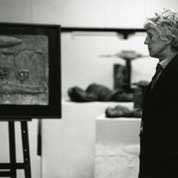 We have learned with deep regret of the death of acclaimed artist, sculptor and academic Ken Ford. Ken was awarded an Honorary Doctorate of Letters from the University in 2010 for his contribution to the artistic life of Leicestershire and the UK.
We have learned with deep regret of the death of acclaimed artist, sculptor and academic Ken Ford. Ken was awarded an Honorary Doctorate of Letters from the University in 2010 for his contribution to the artistic life of Leicestershire and the UK.
As recently reported in the Guardian, internationally-acclaimed artist and academic Ken Ford has sadly passed away.
Born and raised in Birstall, Leicestershire, Ken was inspired to become an artist by the difference he saw between the city streets where he lived and the countryside around his grandparents’ house near Stapleford.
He studied at Leicester College of Art, before going down to London to attend the Royal College of Art, where he graduated with First Class Honours. When he returned to Leicester, the College had become part of Leicester Polytechnic (now De Montfort University), where he was Head of Sculpture from 1967 to 1988. Ken’s artwork has been widely exhibited throughout the UK and abroad.
Ken was awarded an Honorary Doctorate of Letters from the University of Leicester in 2010 for his contribution to the artistic life of Leicestershire and UK.
Wilf Dillon
We have learnt, with regret, of the death of alumnus Wilf Dillon. Wilf graduated in 1973 with a BA (Hons) Sociology. Wilf served as president of the SU between 1971 - 1972.
My friendship with Wilf spanned more than forty years. I first met him in the 1970s when we were students together at Leicester University. I was in my twenties, and Wilf was in his mid-fifties. As a mature student studying politics, Wilf was the grown-up amongst us, but the age gap didn’t seem to matter. He was one of us, a great friend, and we all looked up to him, sought his opinions and advice, and learnt from him. He treated people as equals no matter who they were. He was the nearest thing we had to a national treasure even then!
Wilf was the youngest of three, born in December 1920 in Wigston Magna. His dad was a wagon-repairer and his mum cleaned the local pub. Despite winning a scholarship to grammar school, he had to leave at fourteen to earn a living, a bright working class lad with few qualifications. He fulfilled a lifelong dream to go to University by studying hard for O and A-levels in only four months, aged 51, and went on to gain a politics degree at Leicester. He was elected President of the Students’ Union in 1971. In recognition of his remarkable achievements and his contribution to student life, Wilf was awarded Honorary Life Membership of the Students’ Union which he richly deserved.
We did our fair share of placard-waving in those days, demonstrating for all the things we believed in, getting on coaches down to London and marching to Trafalgar Square - about everything from student grants, to anti-apartheid, and local demos here in Leicester against the National Front. And Wilf was always leading the way. He loved telling the story about the time he had to organise transport for a student demonstration to London and had the brilliant idea of hiring a train. “We thought we ought to give our train a name” Wilf recalls, “so we called it the ‘Thatcher Basher Flasher’ – Margaret Thatcher was causing havoc as Minister for Education at the time. And I have very strong memories of coming back on that train and standing on Platform 6 at St Pancras and the tannoy man announcing “... and the train now arriving at platform six is the Thatcher Basher Flasher for Leicester”!
Wilf was an internationalist and a socialist who hated privilege, poverty and inequality wherever that might be. He strove, through his own actions, beliefs, principals and politics, to do his best to redress the balance. He was a man of many parts; opera-lover, football fanatic, keen sportsman, rambler, mountaineer, ace quiz compiler and devoted father for daughters Pat and Marcia, who talk fondly about how much fun Wilf was as a dad. It was a pleasure and a privilege to have known Wilf. He was a life-enhancer, and his sprit, energy and dynamism, will go on growing with his memory. Wilf leaves behind a big and loving family - two daughters, four grandchildren and eight great-grandchildren.
Words by Esuantsiwa Jane Goldsmith.
William Bootle
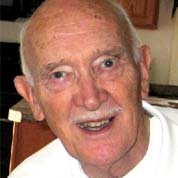 We have learnt, with regret, of the death of William Bootle on June 22, 2017. William gained a Diploma of Education from our University and was the President of the Student Union from 1951 - 1952.
We have learnt, with regret, of the death of William Bootle on June 22, 2017. William gained a Diploma of Education from our University and was the President of the Student Union from 1951 - 1952.
Sam Owori
 Content provided by Rotary International. Written by Ryan Hyland and Abby Breitstein, re-purposed by Taylor Crosby (University of Leicester).
Content provided by Rotary International. Written by Ryan Hyland and Abby Breitstein, re-purposed by Taylor Crosby (University of Leicester).
Rotary flags flew at half-staff last week in front of Rotary International World Headquarters and Rotary offices around the world. Friends and colleagues mourned President-elect Sam F Owori, who died on 13 July from complications after surgery.
An avid learner, Sam graduated with a master’s in Law and Employment Relations LLM in 2000; a business management degree from California Coast University; and a management degree from Harvard Business School.
With an engaging smile and a calming voice, Sam put everyone he talked to at ease, says Hilda Tadria, a member of the Rotary Club of Gaba, Uganda, and a close friend of Sam and his wife, Norah.
“I call it the ‘Sam Smile,’” says Tadria. “It made him very approachable and easy to talk to. I think his smile is one of the things Rotary and his friends will miss most.”
Sam, who had been elected to serve as president of Rotary International in 2018-19, would have been the second African Rotary member, and the first Ugandan, to hold that office. He joined Rotary in 1978 and was a member of the Rotary Club of Kampala, Uganda.
“No matter the situation, Sam was always upbeat, always joking around and putting everyone else in a good mood,” says Tadria.
One of the admirable things about Sam, Tadria says, was his love and devotion to his wife. They met in primary school in Tororo, Uganda. Sam described Norah Owori as beautiful, well-educated, and full of character.
“He adored Norah and always put her first.” Tadria says. “They were best friends and partners for life. It was very sweet to see them together. They never left each other’s side.”
Sam was highly respected in Uganda, Tadria says, for his high integrity and consistent ethical standards. Those qualities, she says, are important in a Rotary president. “He was a man everyone could trust.”
She adds, “He preferred listening to speaking. It’s one reason he was so well-liked.”
The road to President-elect
Like many members, Sam was invited to Rotary by a persistent friend.
The more Sam saw of Rotary’s good work, the more enthusiastic he became. He is largely credited with the tremendous increase in clubs in Uganda: from nine in 1988, when he was district governor, to 89 today. His friends called his enthusiasm “the Owori madness” — to which he mildly replied, “If it is madness, I would be glad if more people would catch it.”
Sam described himself as “an incorrigible optimist” who chose to see the best side of everyone and the bright side of any situation. Gentle in manner, unfailingly modest, and quick to smile, Sam is remembered as “Smiling Sam,” says RI President Ian Riseley.
Sam served Rotary in many capacities, including RI director, trustee of The Rotary Foundation, regional Rotary Foundation coordinator, regional RI membership coordinator, and RI representative to the United Nations Environment Program and UN-Habitat. He was a member or chair of several committees, including the International PolioPlus Committee, the Drug Abuse Prevention Task Force, and the Audit Committee.
Sam and Norah became Paul Harris Fellows, Major Donors, and Benefactors of The Rotary Foundation.
John Smarge, who was selected by Sam to be his presidential aide, called Sam a “rock star” among Rotary members. “In just the two weeks he was President-elect, you could see how much he was loved,” Smarge says. “The Rotarians in Uganda view him as a national treasure.”
Smarge adds, “He spoke with quiet confidence and simple complexity.”
Sam brought an unyielding sense of right and wrong to his work as chief executive officer of the Institute of Corporate Governance of Uganda, to his previous work with the African Development Bank and other institutions, and to his work with Rotary.
Sam, who was one of 15 children, attributed his deep ethical sense to his upbringing, and particularly his father, who had been a school principal and then a county chief in Uganda. “He was a very strict disciplinarian,” Sam remembered, “and when he became chief, he ran that county like a big school — with a ruler. He insisted that everything was done the right way.”
Sam is survived by his wife, Norah; three sons, Adrin Stephen, Bonny Patrick, and Daniel Timothy; and grandchildren Kaitlyn, Sam, and Adam.
Condolences can be addressed to Mrs. Norah Agnes Owori, c/o Institute of Corporate Governance of Uganda, Crusader House, Plot 3 Portal Avenue, Kampala, Uganda or via sam.owori@rotary.org.
Memorial contributions in honour of Sam can be directed to the Sam F. Owori Memorial to Polio.
Tim Pigott-Smith
The prominent actor was educated in the city and honoured by the University.
Margaret Mallett
 Margaret joined the Association's English 4-11 Editorial Board in 1999 after speaking at the Association's Primary Conference in York in March 1988 - Non-fiction: the Cinderella of children's books? She was elected a Fellow of the Association in 2005 and served as a member of the Association's Fellowship Committee until 2016. Margaret was also the co-founder, with Fellow Eve Bearne, of the Association's very successful Children's Literature Interest Group.
Margaret joined the Association's English 4-11 Editorial Board in 1999 after speaking at the Association's Primary Conference in York in March 1988 - Non-fiction: the Cinderella of children's books? She was elected a Fellow of the Association in 2005 and served as a member of the Association's Fellowship Committee until 2016. Margaret was also the co-founder, with Fellow Eve Bearne, of the Association's very successful Children's Literature Interest Group.
An inspiring teacher and author, Margaret's books include Choosing and Using Fiction and Non-Fiction 3-11: A Comprehensive Guide for Teachers and Student Teachers (winner of the 2011 UKLA Academic Book Award), The Primary English Encyclopedia: The heart of the curriculum and Early Years Non-Fiction: A Guide to Helping Young Researchers Use and Enjoy Information Texts.
Margaret was also a regular contributor to Books for Keeps - the online children's books magazine - where you can see an impressive catalogue of her articles and reviews.
Colin Dexter
University pays tribute to honorary graduate Colin Dexter.
Mike Fentiman
We have learnt, with regret, of the death of Mike Fentiman on 22 February. He was an English student at the University of Leicester who would go on to become a successful television producer and writer, championing the idea of ‘community programming’.
A senior producer on BBC2’s Late Night Line-Up in the sixties and seventies, Mike had a significant influence over the philosophy of the topical chat programme. Beginning as a collection of reviews and previews of the channel's output, it soon incorporated live music from some of the biggest artists of the day, film and book reviews, interviews and comedy.
It was the start of a long association with the BBC that Mike continued until his retirement in the 1990s and saw him challenge many established assumptions about public service broadcasting within the institution. As editor of the Community Programme Unit and Disability Production Unit, he gave community and special interest groups freedom to make their own programmes.
He was also a writer and penned three comedy series for Radio 4 and contributed to the award-winning radio series Lines from My Grandfather’s Forehead.
Tim Burfoot
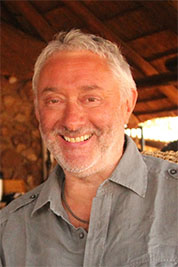 We have learned with deep regret of the passing of alumnus Tim Burfoot.
We have learned with deep regret of the passing of alumnus Tim Burfoot.
Tim went to Leicester University in 1976 to study for a Combined Arts degree and graduated with a 2:1 in 1979. Tim thoroughly enjoyed his time at Leicester, both the University and the City, and recognised that he left with much more than just a qualification. While signing up for his degree course in music he met his lifelong best friend James (Jim) Stewart. Tim was a proficient pianist, and also played the cello and trombone. About ten years ago he and Jim visited Leicester to see their old haunts and this rekindled his interest in the University. He became involved with the Alumni and was a keen supporter of the Student Opportunities Fund.
Tim's funeral was on Friday 5 April at 1.00pm at the Cambridge Crematorium. It is the family's wish that any gifts received in memory of Tim will go to the Student Opportunities Fund, a cause very close to his heart.
Matthew Lanyon
 We have learnt, with regret, of the death of alumnus Matthew Lanyon. Matthew passed away on 6 November, 2016. He was 65. Matthew graduated in 1972 with a BSc (Hons) Geology with Biology and Biochemistry.
We have learnt, with regret, of the death of alumnus Matthew Lanyon. Matthew passed away on 6 November, 2016. He was 65. Matthew graduated in 1972 with a BSc (Hons) Geology with Biology and Biochemistry.
We are indebted to colleagues at The Times for this tribute - read the obituary published by the The Times.
Professor Andy Furlong
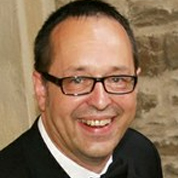 Tributes have been paid to a Leicester graduate who was renowned in the field of youth studies in the UK and beyond.
Tributes have been paid to a Leicester graduate who was renowned in the field of youth studies in the UK and beyond.
Professor Andy Furlong, who died on Monday 30 January 2017 at the age of 60, was a leader for the discipline and an academic whose drive and commitment to understanding the problems of youth brought many colleagues along with him. He was the founder and Editor-in-Chief of the Journal of Youth Studies, a journal he developed from humble origins to being the leading journal in the field.
He held academic posts at the Universities of Edinburgh and Strathclyde before joining the Sociology Department at the University of Glasgow, where he established the Youth, Education and Employment Research Unit and also became Head of the Department, creating a collegiate and productive environment in which Sociology thrived. Following an internal move to the Department of Management, where he was Professor of Sociology, Andy was subsequently appointed as Professor of Social Inclusion and Education in the Department of Education at Glasgow in recognition of his broader work on social class and social inclusion. In 2014 he was appointed Dean of Research in the College of Social Sciences.
Andy had long and deep connections with the University of Leicester. He studied sociology here, obtained his PhD from here under the supervision of Professor David Ashton and was also awarded a DLitt by Leicester in 2012. He served as the external examiner for a number of degrees offered by the Centre for Labour Market Studies and he was a long-term research collaborator with John Goodwin and Henrietta O’Connor.
David said: “Andy attended Leicester University in the 1980s after leaving school at 16 and experiencing of a series of unskilled jobs in Liverpool. He came as a married “mature” student who shone as an undergraduate. I came to know him well as the supervisor of his PhD. It was typical of Andy that he succeeded in finishing his PHD well within the three years while also holding down part-time jobs to support his family. His studentship was linked to a Department of Employment financed research project on Young Adults in the Labour Market which examined the labour market experience of the YTS generation. That PhD provided the springboard from which Andy moved forward to create a reputation as one of the leading, if not the leading authority on the transition from school to work , the youth labour market and youth studies, both nationally and internationally.
“As an educational sociologist he was appointed Dean for Research and Professor of Social Inclusion and Education at the University of Glasgow in recognition of his broader work on social class and social inclusion. He was appointed an Academician of the UK Academy of Social Sciences and a member of the Research Methods and Infrastructure Committee of the ESRC. He also held Professorial positions at the University of Newcastle, New South Wales and the University of Melbourne.
“Andy was an outstanding character. He combined a powerful sociological imagination with a remarkable ability to organise himself and his work and a steely determination to succeed. He was one of the first doctorate students to graduate from what came to be the Centre for Labour Market Studies and he continued to support the Centre throughout his career, both as an external examiner, informal advisor and research collaborator. It was symptomatic of his continued to commitment to CLMS that at the time of his untimely death he was in the process of publishing, with colleagues from Leicester, a re-analysis of the data from the 1980s study of the young adults in the city.
“He was an excellent sociologist and researcher with his achievements being recognized by the University in 2012 with the award of a D.Litt. He was a product of the Sociology Department of which the University of Leicester can be justly very, very proud.”
John said: “I have known Andy since 1991 and I worked with him closely for the last ten years on various grants and the journal. He has also been a key person in my career – always positive and encouraging, able to offer clear advice and unfailingly supportive whatever the career ‘ups and downs’ you were facing. Andy never refused a request for a reference or letter of support, and I feel sure his reference was one of the key factors in my obtaining a Chair at Leicester. Only recently we had corresponded about the final corrections for our forthcoming book – we could never have known this would be our last exchange. Andy was a friend, a colleague, a counsellor, an advisor and a good man. He was a ‘doer’ he got things done, and his international reputation stands testimony to that. We can rightly celebrate his achievements some other time, but at this moment our thoughts are with his wife Gerda and their children.”
Henrietta said: “We have lost not only an absolutely outstanding scholar but also a trusted and loyal friend and colleague. Andy’s down to earth and unassuming personality belied his exceptional academic reputation and achievements. He has been a huge influence on so many people and was always unswervingly supportive, kind and a truly inspirational role model. I feel honoured to have worked with him on recent projects and have learnt so much from him. Our most recent project with Andy, now poignantly appropriate, revisits the field of youth studies where he first started – by looking at the impact of 1980s Youth Training Schemes, the subject of his PhD and the springboard for his remarkable career. Like so many others I will miss him immensely and it is impossible to imagine the world of youth studies without him being part of it. Andy Furlong’s legacy will be long-lasting and we look forward to celebrating his life as the leading scholar in our field.”
Andy’s first book, Growing up in a Classless Society? School to Work Transitions, published in 1992 introduced new theoretical conceptualisations of youth transitions. The 1997 book, Young People and Social Change: Individualisation and Risk in Late Modernity which he co-authored with Fred Cartmel, remains a highly influential text, used by youth researchers across the world. His subsequent publications have continued to push academics and policy makers to consider youth transitions not as a linear progression from school to education to work, but as a non-linear pathway scattered with blind alleys and dead ends, which young people must navigate.
Dr Mark Sims
 We have learned, with regret, of the death of University of Leicester alumnus Dr Mark Sims. Mark passed away surrounded by his family and fiancée, on 19 January 2017. He was 28.
We have learned, with regret, of the death of University of Leicester alumnus Dr Mark Sims. Mark passed away surrounded by his family and fiancée, on 19 January 2017. He was 28.
Mark graduated from the University in 2013 with a Medicine MBChB. In 2016 he was awarded the Outstanding Alumni Achievement Award in recognition of the bravery he had shown by being open about the challenges he had faced and the selflessness he had demonstrated throughout his treatment for cancer.
In February 2015, Mark was admitted to hospital and was diagnosed with stage four malignant melanoma.
Almost immediately after his diagnosis, Mark started chronicling his story on his blog, Wrestling Melanoma, and to date has raised over £100,000 for Cancer Research UK through his Just Giving page.
Dr Richard Rainbow, lecturer in Cardiovascular Cell Physiology, and Mark's supervisor for his intercalated BSc, spoke fondly of his time working with Mark.
‘I was lucky enough to have Mark work with me in the lab during his intercalated BSc year, and he also stayed to do a summer project. He was an absolute natural at scientific research and had a curiosity and hunger to understand. Not only that, he was an absolute joy to have in the lab, incredibly clever, hilariously funny and a generous friend.’
‘At the University of Leicester, we have established the “Mark Sims Prize for Laboratory Excellence” as a tribute to Mark’s exceptional Lab skills. This prize is to be given each year to the intercalated BSc student that has excelled in the laboratory component of their project.‘
‘The phenomenal amount of money that has been raised for Cancer Research is testament to what an inspirational figure Mark remains. He handled his illness and his treatment with openness, grace and dignity and showed us all how you can still live a full life following such a devastating diagnosis.’
In 2015 Mark was awarded the title of Twitter Doctor of the Year by the British Medical Association for sharing his story through social media and spoke at numerous events including the National Nursing Conference. Mark also fulfilled his ‘bucket-list’ aim of returning to Leicester numerous times, giving a speech to Leicester University Students Union Medical Association and running the Leicester Half Marathon.
Our sincere condolences go out to Mark’s family and friends.
Dame Frances Patterson OBE
 We have learnt, with great regret, of the death of graduate and honorary graduate Frances Patterson.
We have learnt, with great regret, of the death of graduate and honorary graduate Frances Patterson.
Frances went to school in Chester before coming to the University of Leicester to study Combined Arts. She graduated in 1975, and studied law at City University before being called to the Bar in 1977.
She joined Kings Chambers two years later. She was awarded an honorary degree of Doctor of Laws by the University in 2012.
Sir David Bean, Chairman of the Law Commission, said: “Frances was Commissioner for Public Law from 2010 to 2013. The reports of the Commission during this period included Adult Social Care and Public Services Ombudsmen among many others. In 2013 she was appointed to be a High Court judge, and most recently was the Lead Judge of the Planning Court. She will be remembered with great affection and respect by all who worked with her at the Law Commission, as well as by her colleagues in the judiciary and throughout the legal profession.”
Michael Nicholson
We have learnt, with regret, of the death of Michael Nicholson on 11 December. Michael was a television journalist who studied at the University of Leicester.
Michael passed away while on a cruise with his wife, Diana, on 11 December 2016. He was 79.
Michael was renowned as one of the world’s most travelled and well respected television foreign correspondents.
After graduating from the University in 1962 with a degree in Social Sciences, Michael pursued a journalism career that spanned over five decades and saw him gain worldwide respect as a dedicated war correspondent.
He joined ITN in 1964 and took on the role of senior foreign correspondent between 1989 and 1999. Michael was working on a story about children trapped by shelling in Sarajevo in 1992 when he first met nine-year-old Natasha Mihalicic, whom he and his wife Diana later adopted in the UK. He went on to write a book, Natasha’s Story, about the events of his time in Sarajevo and his close relationship with Natasha. The book was used as the inspiration for the 1997 award-winning film Welcome to Sarajevo.
Michael braved 18 war zones during his long career, picking up a host of awards along the way. He won numerous British and international awards for his reports in Biafra, Cyprus and Vietnam, and was twice named the Royal Television Society Journalist of the Year. In 1991, Michael was awarded an OBE for his reporting of the Gulf War.
In addition to his wife and daughter Natasha, Nicholson is survived by two sons, Thomas and William, and a daughter, Ana, whom he rescued from the slums in Brazil in 1996.
In a recent interview with The Times, Sir Trevor McDonald was quoted as saying that Nicholson ‘almost single-handedly changed the face of TV news reporting’ in his ten years at ITN.
Our sincere condolences go out to Michael’s family and friends.
